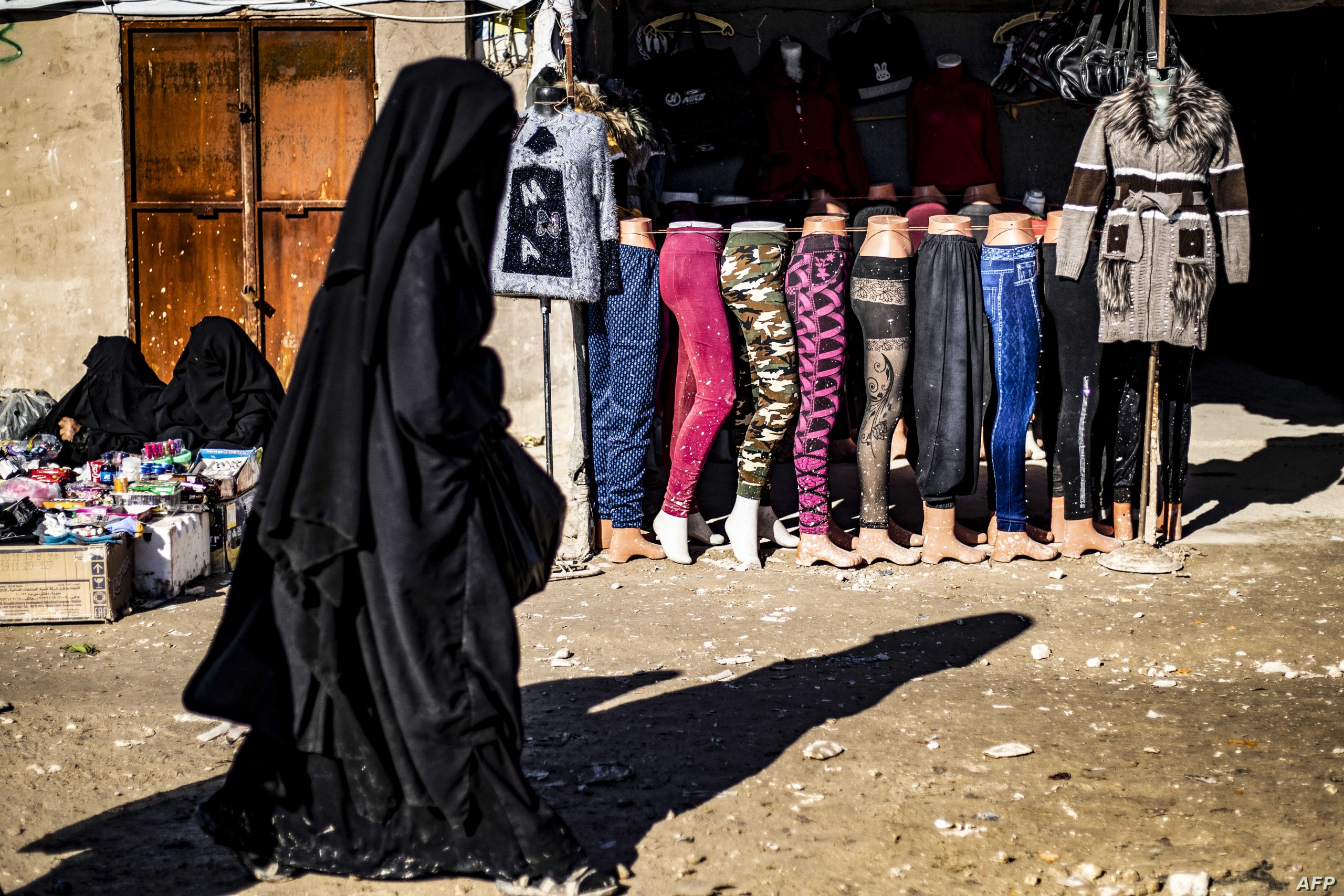The United States has repatriated 11 US citizens, including five minors, as well as the sibling of one of those minors, from northeast Syria in what Secretary of State Antony Blinken called the “largest single repatriation” of Americans from that region.
In a statement Tuesday, Blinken described it as a “complex repatriation and resettlement” which was “coordinated closely with our interagency partners.”
“As a part of this operation, the United States also facilitated the repatriation of six Canadian citizens, four Dutch citizens, and one Finnish citizen, among them eight children,” he added.
The top US diplomat noted that 30,000 people from more than 60 countries remain in the al-Hol and Roj camps in northeast Syria, “the majority of whom are children.”
Al-Hol camp is a sprawling encampment for those displaced from the former ISIS territory in northeastern Syria.
“The only durable solution to the humanitarian and security crisis in the displaced persons camps and detention facilities in northeast Syria is for countries to repatriate, rehabilitate, reintegrate, and where appropriate, ensure accountability for wrongdoing,” Blinken said.
“The United States remains committed to helping those nations which seek to repatriate their nationals from northeast Syria, and to finding solutions, including resettlement, for those who are unable to return to their communities or countries of origin,” he said.
6 Canadian children stuck in Syrian detention camp have now been returned to Canada
Six Canadian children have been repatriated from Syria according to a statement from Global Affairs Canada, CBC reported.
“The Government of Canada has taken extraordinary measures to repatriate six Canadian children from northeastern Syria,” the statement said.
“The focus is now on protecting the children’s privacy and ensuring they receive the support and care needed to begin a new life here in Canada.”
A separate statement issued by U.S. Secretary of State Anthony Blinken said the children were brought back from Syria as part of an operation that saw the U.S. repatriate 11 of its citizens, as well as Canadian, Dutch and Finnish nationals.
Canadian lawyer Lawrence Greenspon confirmed to CBC News that Global Affairs Canada (GAC) informed him the children were transferred to Canada overnight, and that all six have now arrived in Montreal.
Greenspon said that a family has been identified that will care for the six children and the Clinique de Polarization was also present for their arrival.
Greenspon told CBC News in June that the children’s mother was not being permitted to return to Canada after failing to pass a security screening assessment.
Greenspon said the government told him it decided not to repatriate the woman because she “adheres to extreme ideological beliefs” and could pose a risk to the public. He said the government provided no details on how they arrived at that decision.
“They don’t indicate the depth of their assessment or what they took into account or how they came to this conclusion,” he said.
NGO report: pollution, airstrikes, water shortages imperil northern Syria
Turkish airstrikes against civilian infrastructure, oil leaks and lack of access to clean drinking water are worsening the humanitarian catastrophe in Kurdish-led North and East Syria, according to a report by the UN-supported humanitarian initiative REACH.
The overview of the crisis in the region, which has recently faced waves of Turkish airstrikes specifically intended to degrade the region’s crucial energy infrastructure, found:
“North and East Syria faced increased fuel shortages, especially in the Al-Hasakah Governorate where the unavailability of fuel reportedly affected the access to electricity in 50% of assessed communities.
“The growing unavailability of fuel is one of the consequences of the damage to civilian infrastructure caused by repeated airstrikes in North and East Syria.”
The research, which was based on interviews in over a thousand local communities throughout the multi-ethnic autonomous region, identified a wide range of needs among both internally displaced people (IDPs) and their host communities, including urgent needs for repairs to infrastructure, access to basic supplies like cooking fuel and medicine, and access to education and hygiene facilities.
The report particularly spotlighted the environmental crisis in the region, also driven by over a decade of war, the region’s isolation, and its forced reliance on unsafe indigenous diesel manufacture to maintain a basic standard of humanitarian provision.
“While most of the communities in North and East Syria rely on crop agriculture for livelihoods, farmers faced issues related to decreased soil quality and damage to agricultural lands due to pollution,” REACH stated.
In particular, the survey found pollution posed a threat in the Deir-ez-Zor region, home to most of North and East Syria’s oil infrastructure: “Reports of land pollution were the highest in communities located along the Euphrates River in the Deir-ez-Zor governorate. Cropland pollution may have resulted from recent oil leaks in several rivers in the region.”
Access to water is also a particular issue faced in the region. Ongoing desertification is compounded by Turkey’s control of crucial water resources. Turkish-backed armed groups have repeatedly closed off the flow from the Allouk water station, leaving hundreds of thousands of locals without access to drinking water, while Turkey is also accused of siphoning the water flow through the crucial Euphrates River, leaving local communities and farmers unable to access the water they need.


